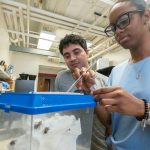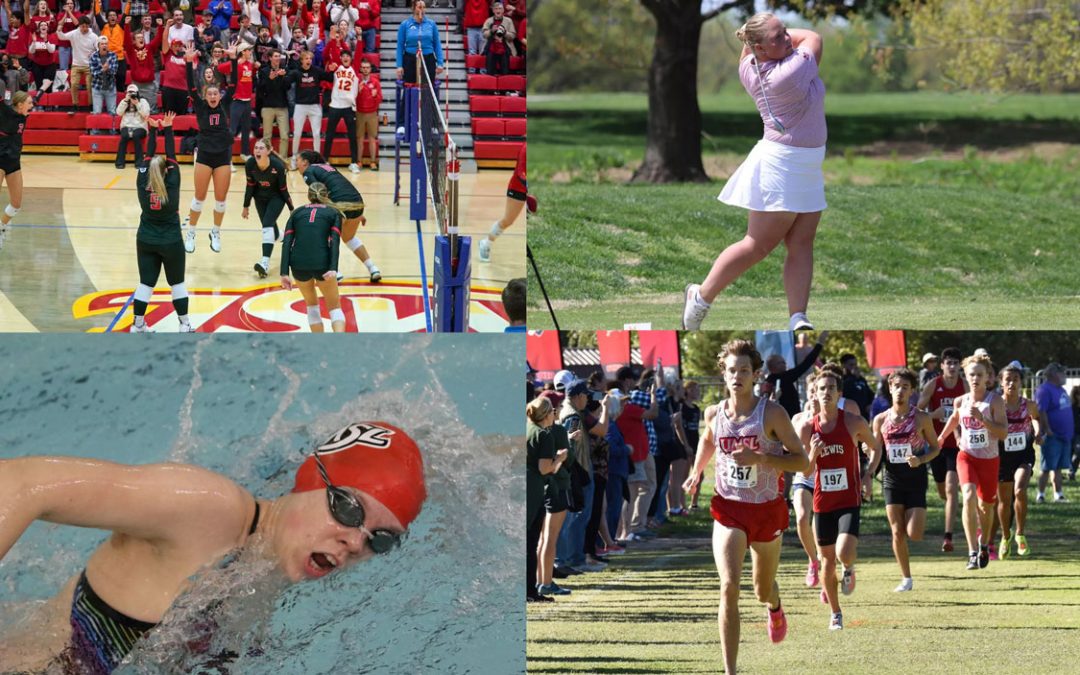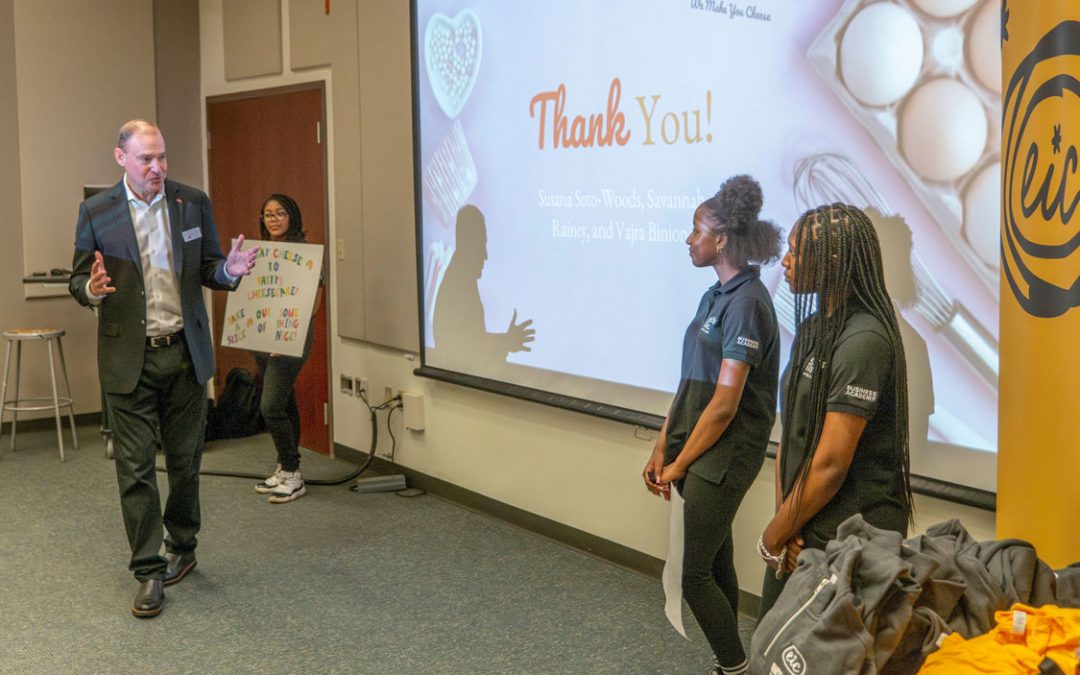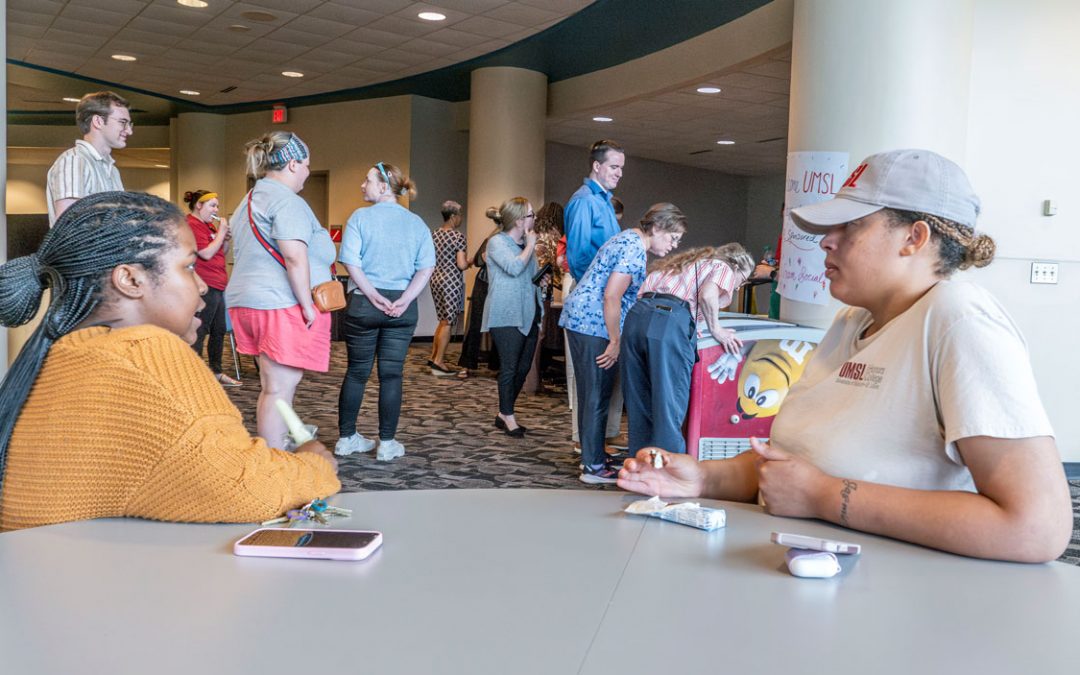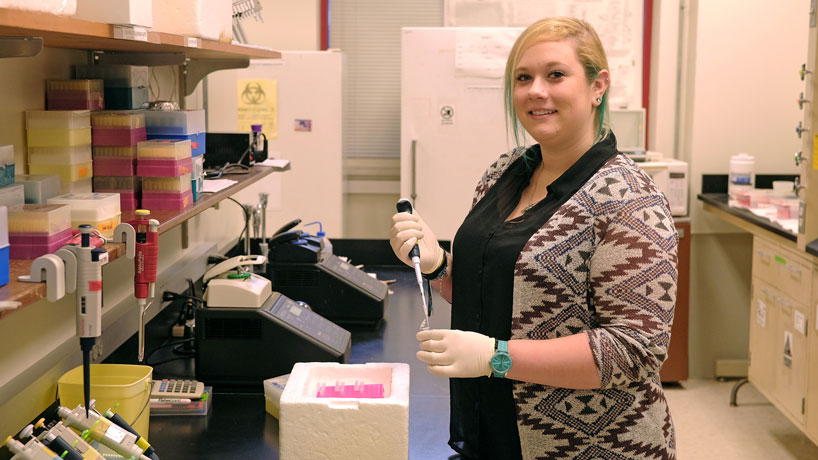
Lindsey Gray tests blood samples from birds of Cuba for malaria parasites, a research project she won grants for during her senior year at UMSL. She graduated May 16 with a bachelor’s degree in biology. (Photo by August Jennewein)
Lindsey Gray hadn’t ever really considered herself a researcher until her senior year at the University of Missouri–St. Louis. After demonstrating promise and enthusiasm in a vertebrate physiology course, doctoral student and teaching assistant Leticia Soares invited her to help in the lab. Gray graduated May 16 with her bachelor’s degree in biology and with experience in testing for malaria parasites in avian populations in Cuba.
“Malaria in birds is a really big issue,” Gray said. “It’s caused extinctions in other islands, like Hawaii. Because Cuba is an isolated island in the archipelago of the West Indies, if a disease were to come in, it could be very deadly and could cause extinction of certain bird species.”
Tracking avian malaria parasites in Cuba is work done out of Curators’ Professor of Biology Robert Ricklefs’ lab at UMSL. Gray said that the island hadn’t been screened yet for its parasites, so the work she did along with Soares was laying the foundation for understanding what’s on the island.
“Right now, what we’ve seen is just the prevalence of infection,” Gray said. “The next step is to actually identify the parasite lineages.”
They did so performing DNA extraction and testing blood samples for the presence of the parasites.
“We’ve gotten a couple done but there are still a lot more to do,” she said. “We did find one bird with P. relictum [Plasmodium relictum], which is the parasite that wiped out a lot of bird species in Hawaii.”
Gray presented their findings at multiple conferences throughout the spring semester thanks to the $1000 College of Arts and Sciences Undergraduate Research Award. She went to the Midwest Ecology and Evolution Conference at Indiana University in Bloomington and also presented at the Undergraduate Research Symposium at UMSL, among other conferences.
“I think my favorite part was just feeling like I belonged to such an amazing research community,” Gray said. “It’s really great to see everyone’s excitement and passion they have for ecology and evolution.”
She also received the 2015 Marcelle Kranzberg Undergraduate Research Award from the Whitney R. Harris World Ecology Center at UMSL, which helped fund lab expenses.
Now that she has graduated, Gray will pursue a career as a zookeeper, something she has always dreamed of doing. She won’t be entirely new to the job either after having worked back-to-back summer internships with primates at the St. Louis Zoo.
“The zoo also does a lot of research,” Gray said. “Before this, I hadn’t really thought about research as an option in my career. Now that I’ve gotten this experience, I definitely feel more comfortable moving in that direction.”












